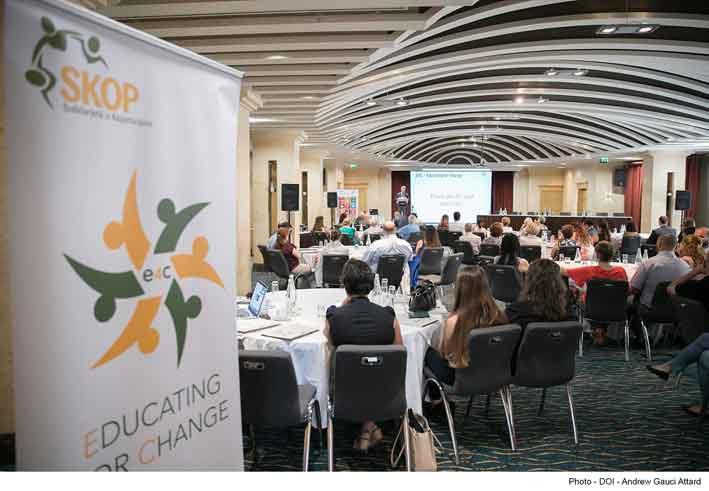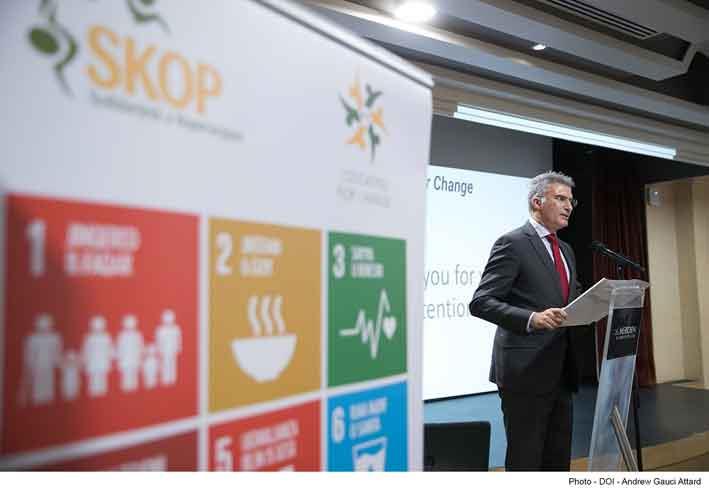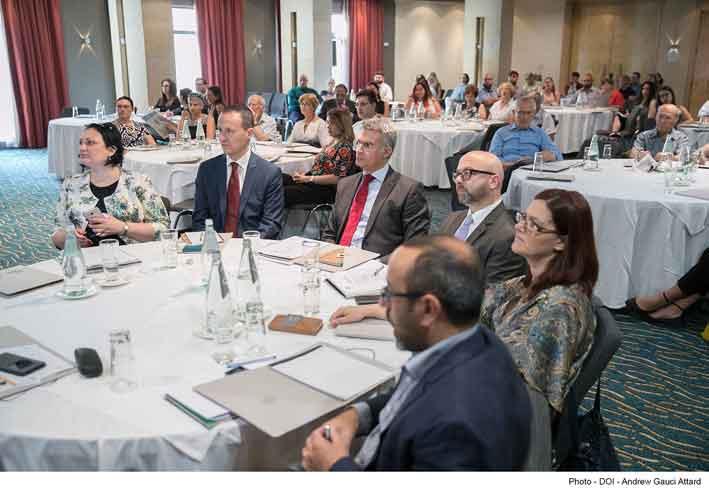“In these past six months, the Maltese Presidency of the Council of the European Union has had the opportunity to put its priorities forward, right at the heart of Europe. Our Presidency has made real progress on a range of issues that matter to all, such as migration, development cooperation, and humanitarian aid,” said Minister for Foreign Affairs and Trade Promotion Carmelo Abela. “We shall persevere in our efforts to address the root causes of migration and to enhance work on the links between migration and development through concrete measures.”
Minister Abela was addressing a conference on the project ‘E4C - Educating for Change’, that was aimed at putting human rights and social justice on the agenda of Malta’s Presidency of the European Union. The event was organised by SKOP, the national platform of Maltese NGOs working on sustainable development and global social justice, and was held in St Julian’s on Monday. In October 2016, the Ministry for Foreign Affairs agreed to co-finance this project as one of its commitments for the Maltese Presidency in the field of International Development Assistance. The major party in co-financing, with 80 per cent funding, is the European Commission. The project will be concluded in October 2017.

Minister Abela pointed out that, besides work at the European level as EU Presidency, Malta has also been pursuing its commitment towards development assistance on the national level. In fact, the Ministry for Foreign Affairs and Trade Promotion has co-financed a total of 12 projects across Africa, Asia and South America through the efforts of different local NGOs for 2017. The projects touch on a variety of development issues, such as access to potable water, education and health services, decreasing malnutrition, and creating opportunities for people to earn an income.

The minister said that the partnership between civil society and government remains crucial to the success of the implementation of the 17 Sustainable Development Goals (SDGs) of the 2030 Agenda for Sustainable Development, which was adopted by world leaders in September 2015 at a historic UN Summit. Indeed, the E4C project demonstrates how such a partnership can work in practice and that raising public awareness about development cooperation is part and parcel of the quest to eradicate poverty.

“The NGO sector has always been, and remains, the long arm of the Government in attaining preparedness towards the implementation of Agenda 2030,” Minister Abela said. “We appreciate, and we intend to continue supporting, the important work that NGOs carry out in different communities around the world in their efforts to eradicate poverty.”